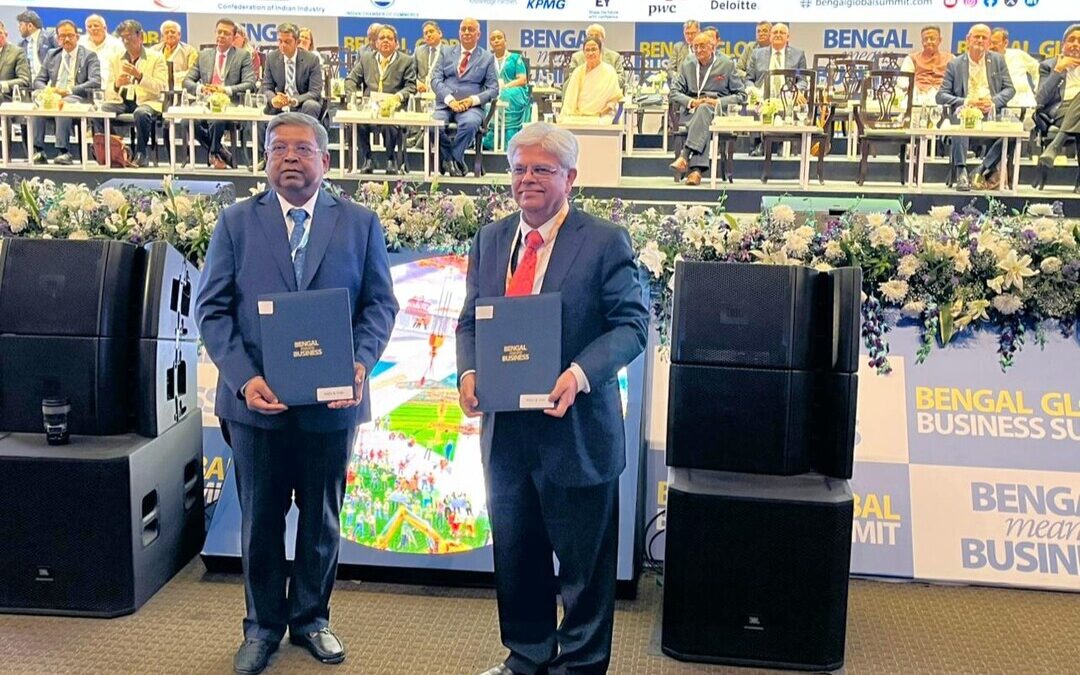TERI and West Bengal Government Ink MoU to Propel Energy Transition
TERI and West Bengal partner to boost clean energy and eye innovative renewable applications such as floating solar and agri-photovoltaics.
The Energy and Resources Institute announced on Thursday that it signed a memorandum of understanding with West Bengal’s Department of Non-Conventional and Renewable Energy Resources to accelerate the state’s transition to clean energy.
The agreement, signed at the Bengal Global Business Summit 2025, aims to bolster West Bengal’s commitment to India’s net-zero targets by 2070.
As part of the collaboration, TERI and NRES have identified key areas of engagement, including the development of innovative renewable energy applications such as floating solar, agri-photovoltaics and building-integrated photovoltaics, besides enhancing cleantech manufacturing in the state.
Additionally, TERI will support the state in exploring grid-scale battery energy storage systems and facilitate research into energy storage solutions for the West Bengal Transport Corp’s electric bus and ferry services.
Expanding the Energy Transition Agenda
The agreement follows TERI’s broader push to drive India’s clean energy agenda. Last month, the institute signed a separate MoU with the Bureau of Energy Efficiency to establish the Centre of Excellence for Energy Transition within the Institute of Energy Transition at TERI’s Hyderabad campus.
The signing ceremony, held in Hyderabad on Jan. 24, was attended by Power Minister Manohar and Telangana Chief Minister Revanth Reddy, along with senior officials from the Ministry of Power, BEE, the Government of Telangana, and TERI.
The CoEET is envisioned as a world-class research hub that will foster innovation, policy advocacy and capacity-building to advance India’s energy transition efforts.
The center will conduct studies on reducing emissions, improving energy efficiency and adopting clean technology in the industries, transport and power sectors.
To promote sustainability, it will also develop frameworks for building codes, minimum energy performance standards, and circular economy models.
Achieving sustainable development goals
Speaking at the event, the power minister described the center as “a bold and transformative initiative that underscores India’s commitment to achieving sustainable development goals.” He emphasized its role as a catalyst for clean energy adoption and innovation.
Dr. Vibha Dhawan, director general of TERI, highlighted the center’s multidisciplinary approach, stating that it “aligns with the shared vision of promoting a sustainable future through cutting-edge research in climate and energy transition domains.”
Establishing the IoET and its centers of excellence positions Hyderabad as a global hub for energy and environmental research, and the CoEET is expected to be pivotal in the country’s transition to a sustainable and resilient energy future.

